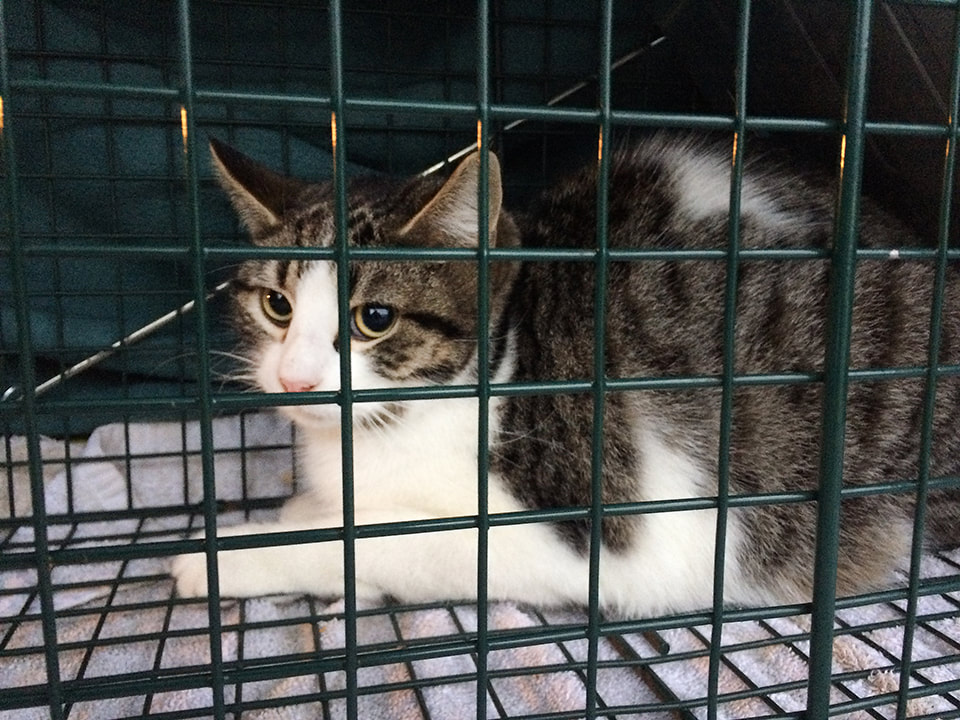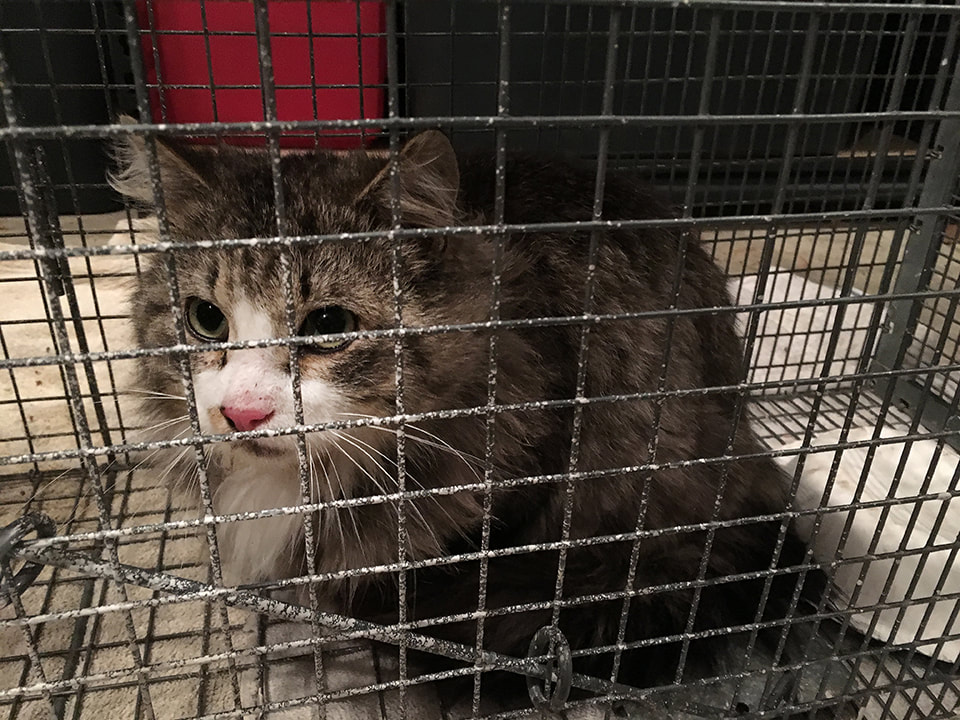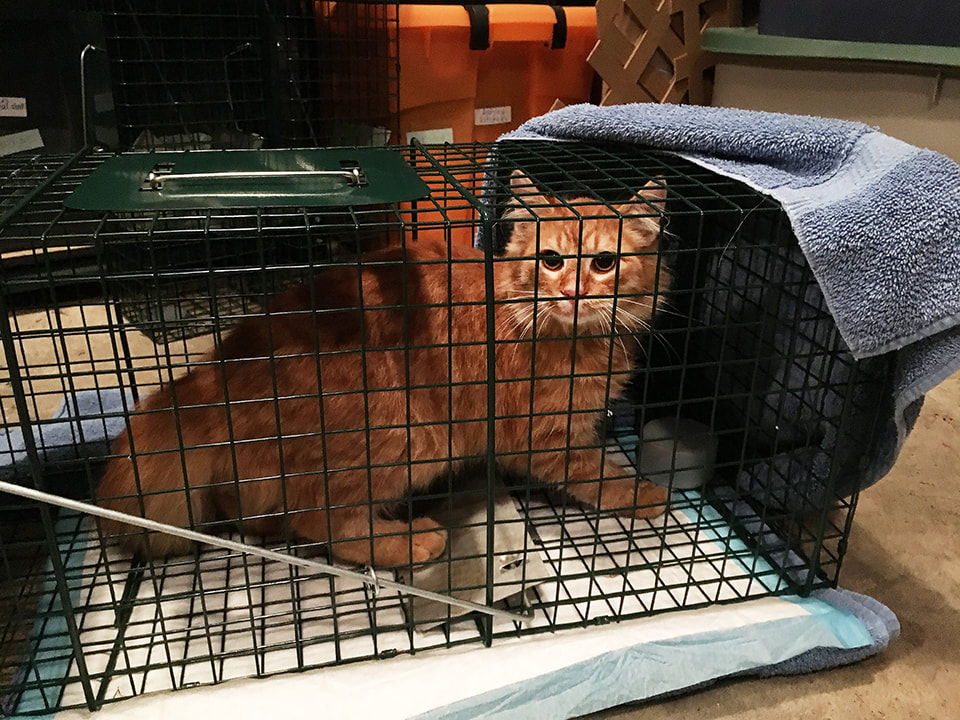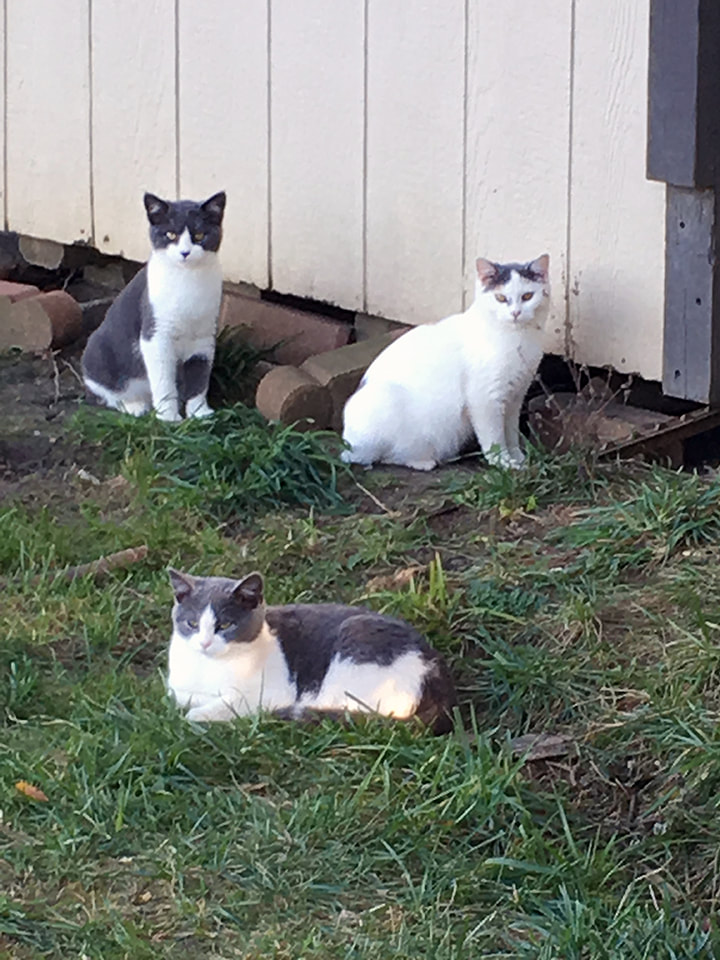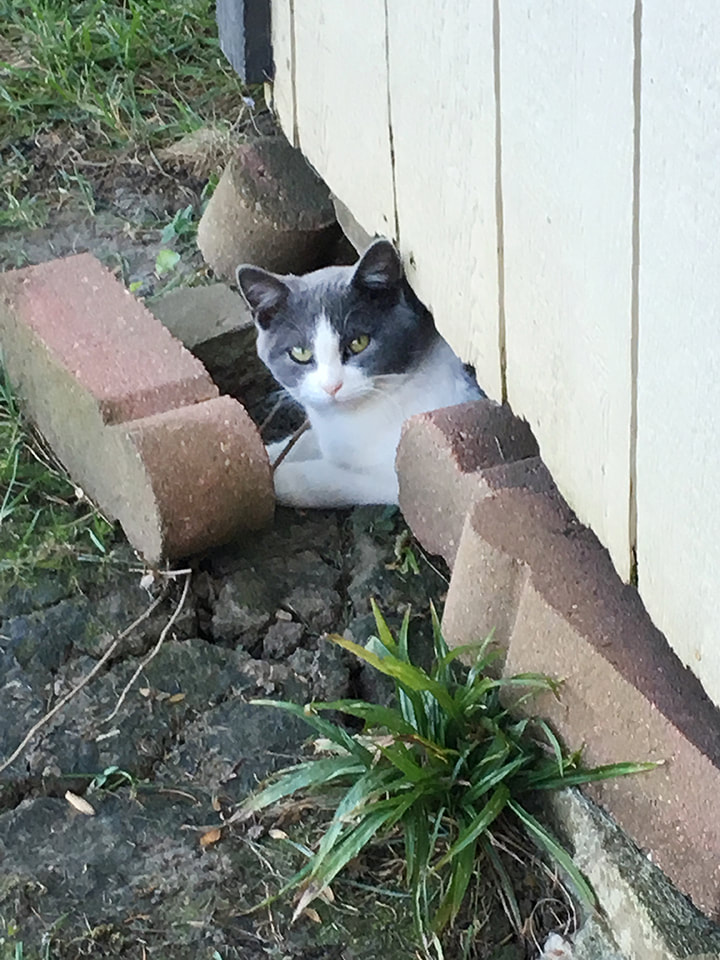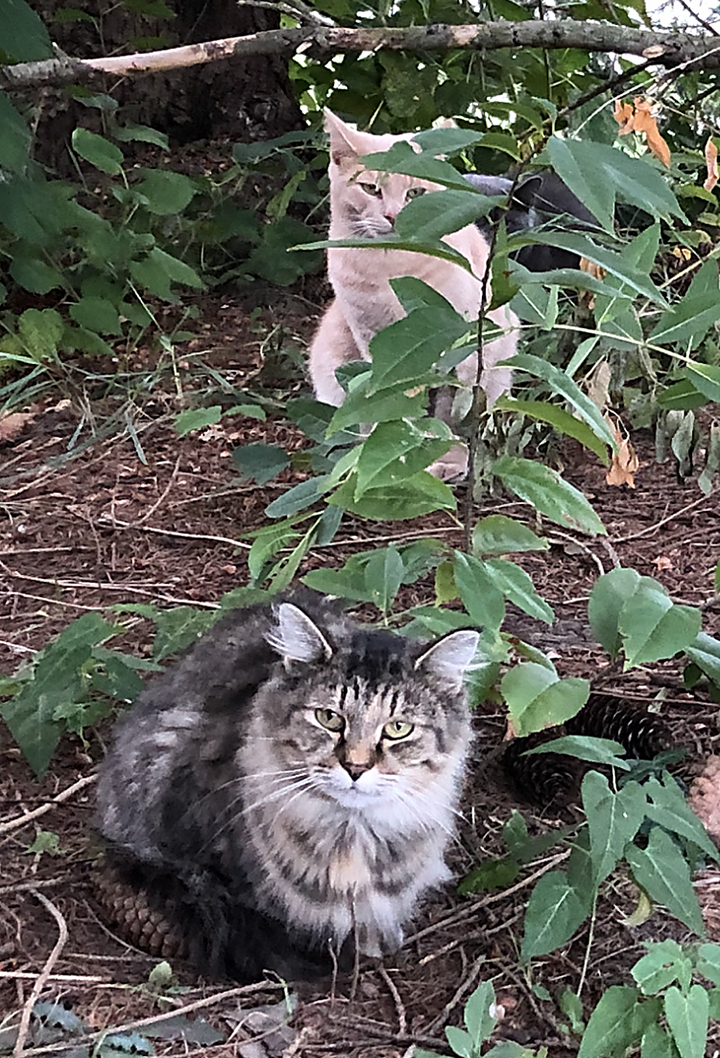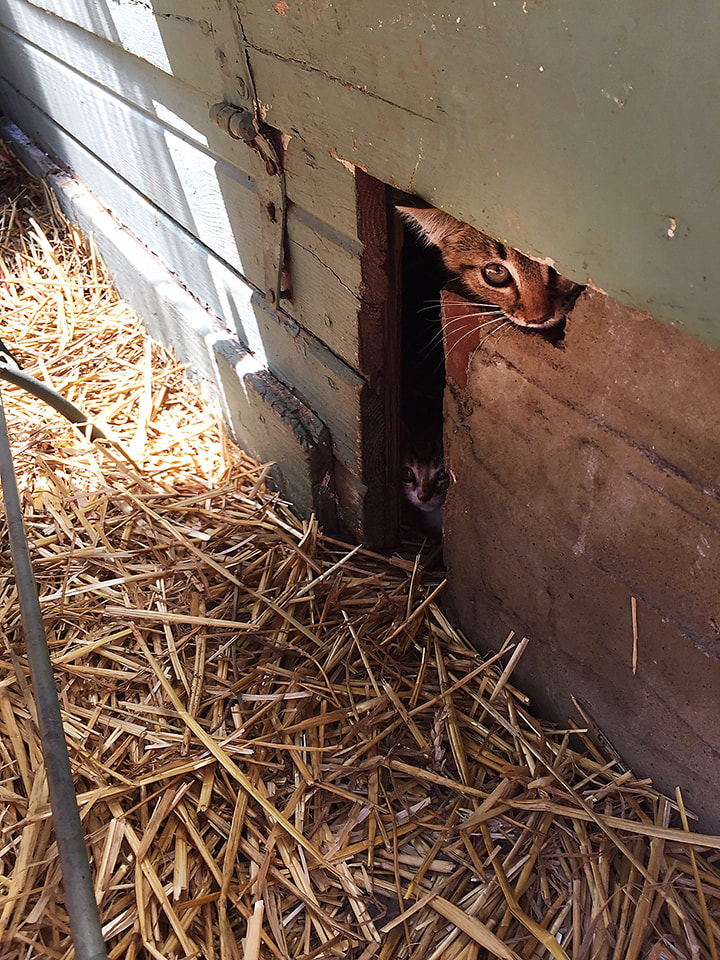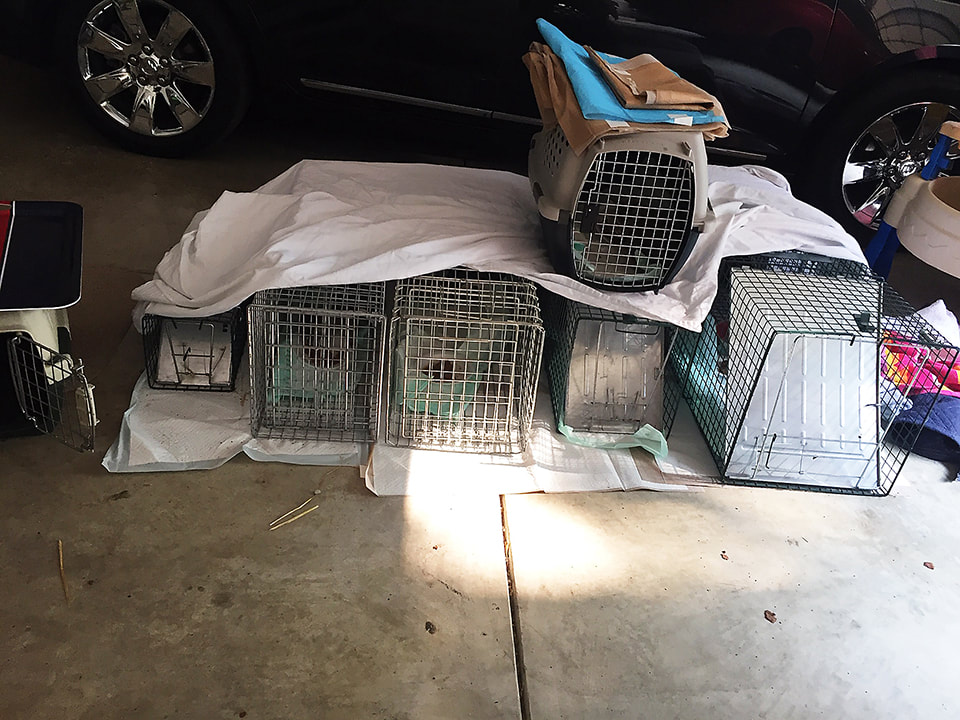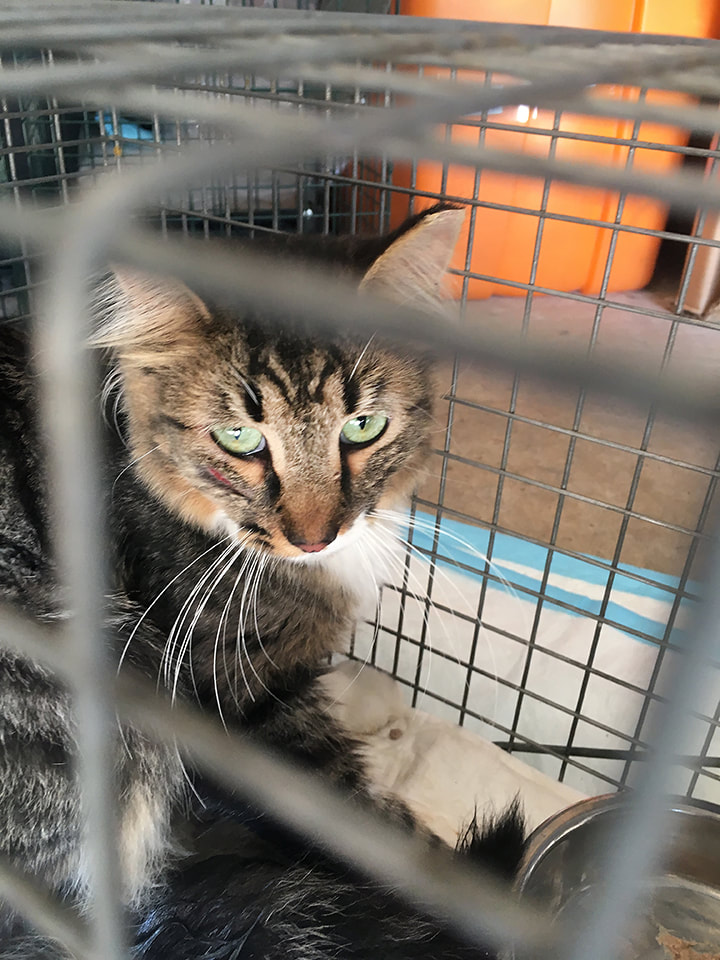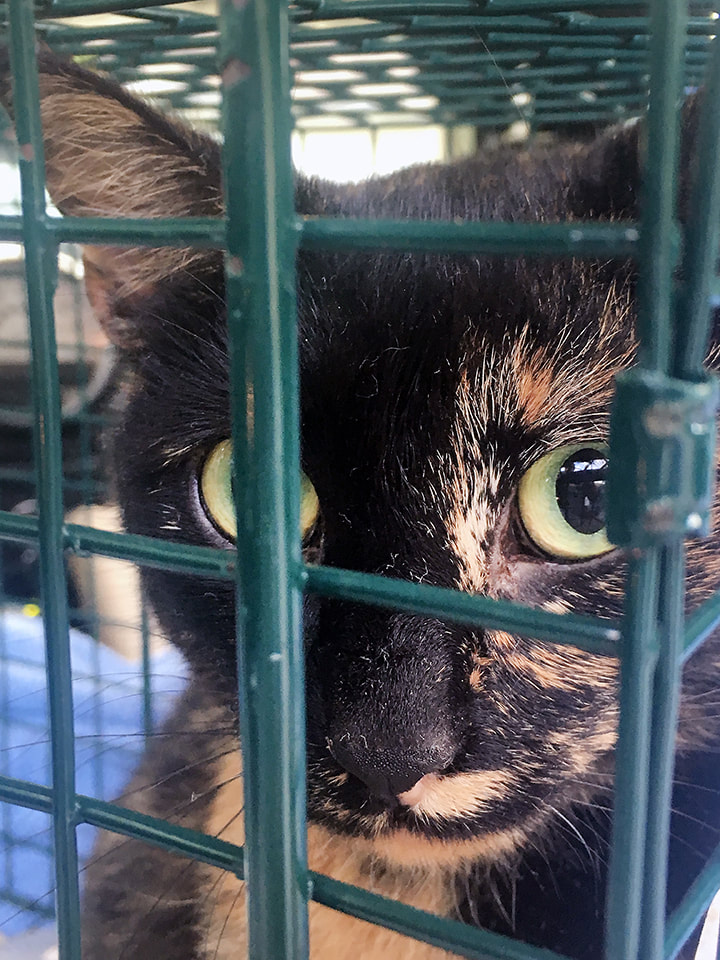RESOURCES
TNR Information
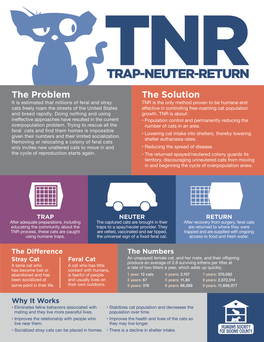 Click to enlarge.
Click to enlarge.
Feeding stray and feral kitties every day isn’t enough to properly help them or control overpopulation.
Feral and stray cats also need veterinary care, which includes spay or neuter surgery to limit population growth, three-year rabies shot and possibly other vaccinations, deworming, flea medication and left ear tip to designate them as outdoor kitties that are being looked after by responsible people.
Humane traps are easy to use and enable community cat caretakers to safely transport unaltered feral kitties for veterinary care at Low Cost Spay and Neuter Clinics.
For tips on using humane traps, use an online search engine to find educational information about how to set the trap as well as safely transport trapped feral cats and then provide care during the 24 hour recovery time after surgery. It takes a day for cats to recover from the effects of anesthesia before they are alert enough to be safely returned and released in their territory.
Most community cats will only go into a humane trap once so need to be transported for veterinary care as soon as possible after trapping. Do not try to pet feral cats or put your hands where the cat can bite or scratch you. Cover the trap with a towel, sheet or blanket and wear gloves before attempting to pick it up. The cat may thrash in the trap even when it is covered so talk softly and move slowly during transport. Place old towels on top of plastic trash bags on the car seat before putting the trap there.
Community cats also need year-round shelter that protects them from inclement weather and predators unless they have already found safe nesting sites under a shed or other outdoor haven. Styrofoam coolers can be modified to serve as insulated shelters, and many rescue groups provide these free shelters by request.
Several community cat caretaker websites recommend the following guidelines:
Feral and stray cats also need veterinary care, which includes spay or neuter surgery to limit population growth, three-year rabies shot and possibly other vaccinations, deworming, flea medication and left ear tip to designate them as outdoor kitties that are being looked after by responsible people.
Humane traps are easy to use and enable community cat caretakers to safely transport unaltered feral kitties for veterinary care at Low Cost Spay and Neuter Clinics.
For tips on using humane traps, use an online search engine to find educational information about how to set the trap as well as safely transport trapped feral cats and then provide care during the 24 hour recovery time after surgery. It takes a day for cats to recover from the effects of anesthesia before they are alert enough to be safely returned and released in their territory.
Most community cats will only go into a humane trap once so need to be transported for veterinary care as soon as possible after trapping. Do not try to pet feral cats or put your hands where the cat can bite or scratch you. Cover the trap with a towel, sheet or blanket and wear gloves before attempting to pick it up. The cat may thrash in the trap even when it is covered so talk softly and move slowly during transport. Place old towels on top of plastic trash bags on the car seat before putting the trap there.
Community cats also need year-round shelter that protects them from inclement weather and predators unless they have already found safe nesting sites under a shed or other outdoor haven. Styrofoam coolers can be modified to serve as insulated shelters, and many rescue groups provide these free shelters by request.
Several community cat caretaker websites recommend the following guidelines:
- Provide adequate food and water daily as well as shelter for the number of cats in the colony.
- Using a humane trap, catch unaltered cats for spay or neuter, rabies vaccination and ear tip by a licensed veterinary clinic.
- Seek assistance for ill or injured cats.
- Help community cats maintain a good neighbor status so they will not become nuisances and targets of abuse.
- Report acts of neglect, cruelty, abandonment or abuse to the Boone County Sheriff’s Office Animal Control Division by calling Dispatch at 765-482-1412, extension 8.
- Find another caretaker if you can no longer provide daily care for community cats.
- Thank you for caring enough to help these outdoor kitties who prefer to live their lives outside.

